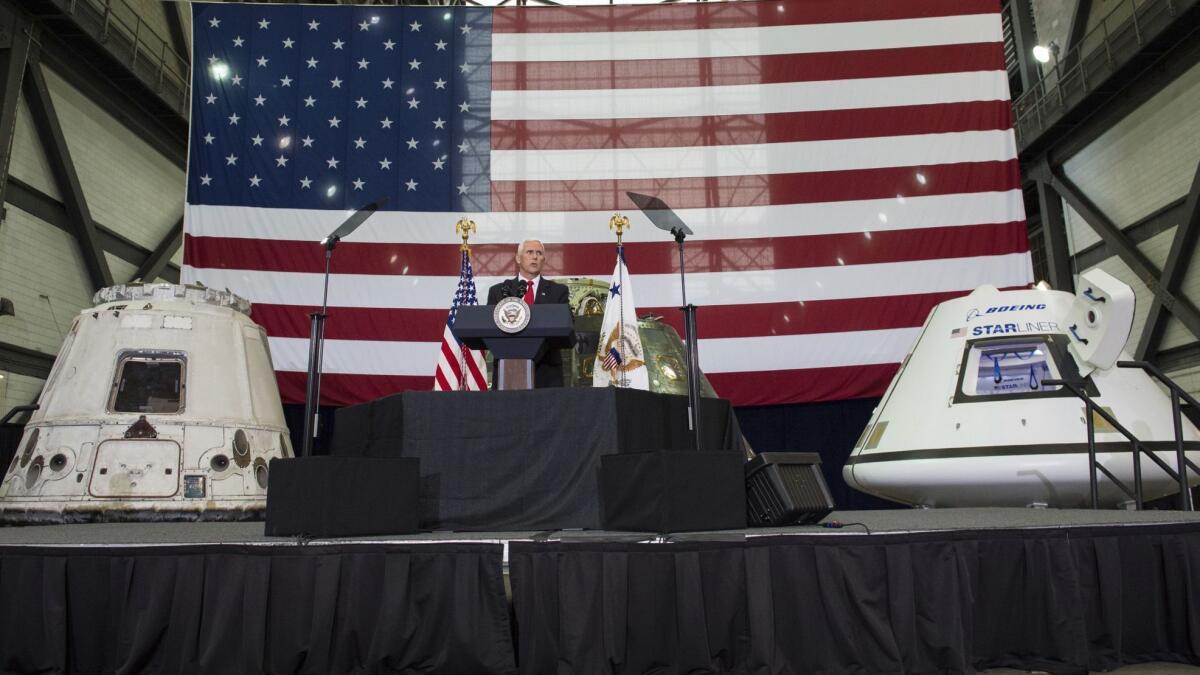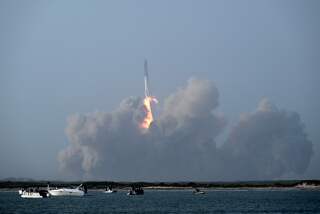First flights for Boeing and SpaceX crew capsules are delayed again

- Share via
U.S. astronauts face a longer wait before American-made crew capsules are ready to transport them to the International Space Station.
The first flights of the two capsules, one being developed by Boeing Co. and the other by SpaceX under NASA contracts, have been delayed again, according to a flight test launch schedule released Thursday by NASA.
Hawthorne-based SpaceX’s flight test, without a human crew, is now scheduled for November and Boeing’s test is now set for late 2018 or early 2019. Both test flights were previously scheduled for August, though industry analysts expected those dates to slip.
In June, a portion of Boeing’s test capsule suffered what was described as an “anomaly” during an engine test fire, leading to a propellant leak. The Chicago aerospace giant said at the time that it was “confident” it had found the cause and was “moving forward with corrective action.”
The flights are precursors to a second test flight with crew aboard. Those test flights — which will mark the first time U.S. astronauts blast off to the space station from U.S. soil since the end of the space shuttle program in 2011 — are now scheduled for next year. Previously, they had been set for the end of this year.
SpaceX’s director of crew mission management, Benji Reed, said in a NASA statement that “safely and reliably flying commercial crew missions” was the company’s highest priority.
In that same statement, Boeing commercial crew program manager John Mulholland said the company was committed to “the highest level of mission assurance” and that the “earliest time we can confidently do that” will be mid-2019.
The U.S. Government Accountability Office had warned in a report last month that certification of each capsule could be delayed, possibly leading to a gap in access to the space station for U.S. astronauts. The U.S. contract with Russia to transport astronauts extends only through November 2019.
Twitter: @smasunaga
UPDATES:
1:40 p.m.: This article was updated with comments from SpaceX and Boeing from a NASA statement.
This article was originally published at 12:35 p.m.
More to Read
Inside the business of entertainment
The Wide Shot brings you news, analysis and insights on everything from streaming wars to production — and what it all means for the future.
You may occasionally receive promotional content from the Los Angeles Times.











